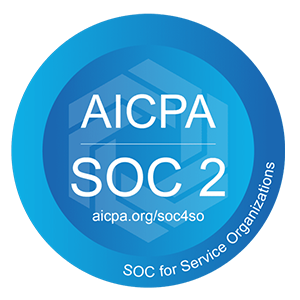If your company is used to constructing job postings and advertising job ads with requirements like a bachelor’s degree or Harvard Business School graduate, it is about time to open your doors to a larger pool of talent by ushering skill-first hiring.
What Is Skills-Based Hiring?
Skills-based hiring is a recruitment approach in which candidates are evaluated based on quantifiable talents and skills rather than subjective factors like education or past work experience.
According to Harvard Business Review, in the 2000s, a significant number of employers began adding degree requirements to job descriptions that did not previously require degrees, even though the jobs did not really change. The trend, sometimes known as “degree inflation”, became particularly pronounced after the Great Recession of 2008-2009. Subsequently, at some point leaders in government, business, and community-based organizations recognized that a reset was in order.
Many large corporations later announced that they would eliminate degree requirements in much of their hiring.
Now, companies have been more willing to consider applicants who do not necessarily have a college degree or minimum years of experience. Forbes reported in 2022, 76% of employers use some skills-based hiring to find new talent, with almost 55% using role-specific skills tests.
Experts said despite a challenging economy, companies struggle to attract and retain highly skilled workers. That is why being able to pivot and implement timely recruitment practices is more critical than ever.
Advantages Of Skills-Based Hiring
Embracing skills-based hiring has many benefits for businesses. Among the top advantages of the rising recruitment practice are:
- Expand Talent Pool
Skills-based hiring practices can help employers identify candidates with talents compatible with the job position.
Moreover, removing unnecessary job requirements like years of experience in a specific role may expand an employer’s talent pool immensely.
- Accelerate Time To Hire
The skills-based hiring approach can fill vacancies faster, according to Forbes.
Possibly due to a wider talent pool, skills-based hiring results in a more speedy and efficient hiring process. An articleonline mentioned the time to hire, the period that elapses between a candidate entering a company’s talent pool and getting a job offer, is an essential metric for recruiters. When hiring managers assess candidates early on, the recruitment team can quickly rank applicants based on their quantifiable skills rather than being jaded by pedigree provisions.
A survey indicated that 91% of companies saw a reduction in their total time-to-hire.
- Reduce Hiring Cost
When businesses fill vacancies faster, the total cost of advertising and marketing the position is lessened.
Additionally, a skills-based approach attracts candidates that require little to no specialized training. Employers eventually save time and money during the onboarding process when they conduct skills assessments during the talent acquisition process.
- Promote Diversity
According to LinkedIn, people from historically marginalized groups are less likely to have a college degree or formal education. For this reason, they are also more likely to be excluded from certain industries and roles.
In light of the rise of skills-based hiring, employers now focus on objective criteria that are more relevant to the job. Companies can reduce unconscious bias in the hiring process and build a more diverse workforce.
Besides race and ethnicity, skills-based hiring also aids women to apply to jobs they may not have otherwise applied for due to a higher self-qualification bar. Workplace diversity can bring new perspectives and ideas to the company. Given that, adopting skills-based hiring can lead to increased creativity, and innovation, and even boost client acquisition.
- Improve Employee Retention
Another advantage of the skills-based hiring approach is that it helps strengthen employee retention. An online reportmentioned hiring for skills is five times more predictive of job performance than hiring for college degrees and more than two times more predictive than hiring for work experience. Studies suggest employees without college degrees tend to stay in their roles 34% longer than college graduates. At a time when staff turnover rates are on the rise, hiring based on hard skills and soft skills can be a huge advantage.
Time To Implement Skills-Based Hiring!
As with any big change, shifting to skills-based hiring requires commitment and consistency.
If your company is used to constructing job postings and advertising job ads with requirements like a four-year degree diploma, it is about time to open your doors to a larger pool of talent by practicing skill-first hiring.
The first major step in joining the skills-based hiring movement is to update all your job descriptions. Job ads should now focus on responsibilities and the competencies a candidate should have to ensure an exemplary future performance at work. Instead of advertising a degree requirement, companies should discuss the essential and technical skills a candidate should have for the role. Managers should also acknowledge that other capabilities and new skills can be learned when doing the actual work, especially for an entry-level position.
Hiring managers can evaluate qualified candidates by conducting pre-employment testing and skills assessments during the hiring operation. This way, they can identify applicants capable of fulfilling high-skill positions or middle-skill positions, accordingly. Recognizing the skills needed for every role at work can help employers fill the skills gap–a problem which degree-based hiring contributed to.
Remote Support Services For Your Specific Needs
The labor market continues to grow and transform to address the challenges that come with time.
During the pandemic, when people were forced to isolate, the talent shortage increased even more because a lot of people were afraid to go out and make a living. Fortunately, forward-thinking employers managed to find a solution and allowed their employees to perform tasks at home. Some individuals thrived in the remote work setup. The phenomenon of working from outside the office, and skills-based hiring filled the skills gaps in the labor market.
Now, companies can hire a candidate even if they live far away from the office as long as they possess the skills required for the specific job.
If your business needs professional services, consider hiring a highly skilled remote employee. Outsourcing talents is a cost-effective solution for businesses looking to optimize budgets without compromising on talent. Remote service providers, specifically in the Philippines, have modest salary expectations and lower living costs compared to local employees in America. This allows business owners to onboard qualified individuals while also acquiring significant savings compared to hiring from more expensive regions. According to a report, home-based outsourcing in the Philippines can save a company up to 75% of the wages that Western employers normally pay a local talent. Businesses can also save on resources normally spent on tax compliance, health insurance, and social security because remote employees work independently.
Tasks You Can Delegate To Remote Employees:
- Administrative duties
- Data entry
- Financial record-keeping
- Bookkeeping
- Project management
- Account management
- Managing social media accounts
- Receiving inbound calls and answering office phone calls
- Content writing
- Provide customer service assistance
- Generate strategies for business development
- Crisis management and proposing solutions
- Human resources assistant
- Provide feedback after marketing campaigns
Hire A Skilled And Qualified Virtual Assistant
Are you experiencing talent shortages in your company? Contact Remote Raven now!
The company can connect you with professional Filipino remote service providers. Depending on your specific business needs, Remote Raven will vet multiple candidates and help you find the best person for the job. If you are interested in conducting skills testing to determine the capabilities of the candidates, the outsourcing company can assist you throughout the hiring operation.
Be one of the growing number of companies to experience the benefits of shifting to skills-based hiring and employing remote workers!
###





